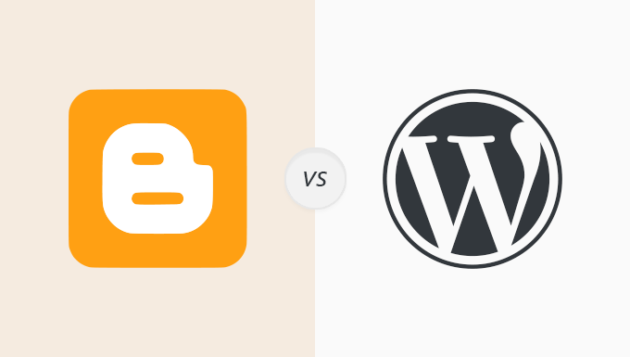Introduction:WordPress vs. Blogger
WordPress vs. Blogger :Embarking on a digital marketing journey, the decision between WordPress and Blogger looms as a pivotal choice. Navigating the intricate landscape of these platforms requires careful consideration of their merits and drawbacks. This article serves as a guide, shedding light on the nuances, advantages, and disadvantages of both WordPress and Blogger. Let’s delve into the factors that will empower your decision-making process.
Exploring Popular Blogging Platforms
In the vast realm of blogging, WordPress.org and Blogger emerge as leading contenders, each with a unique set of attributes. The choice between them hinges on your specific needs and objectives, particularly for marketers seeking versatility and scalability. In this section, we explore why WordPress often stands out as the preferred option.
The Marketer’s Choice: WordPress
WordPress, with its expansive ecosystem, offers marketers a multitude of benefits that cater to customization, functionality, and community support.
WordPress Pros
- Code Control: Unleash the freedom to customize your site without constraints by having control over the code.
- Extensive Plugin Library: Access a wide array of plugins to effortlessly enhance your site’s features and functionalities.
- Supportive Community: Immerse yourself in a vibrant community of developers and users always ready to assist with any challenges you may encounter.
WordPress Cons
- Update and Security Responsibilities: Managing updates and security can be time-consuming.
- Cost Considerations: Compared to some platforms, WordPress may be more expensive due to hosting and domain name expenses.
- Learning Curve: While robust, the platform may have a learning curve to fully exploit its features.
The Appeal of Blogger
Blogger, on the other hand, attracts users with its simplicity, cost-effectiveness, and automatic updates. In this section, we delve into why Blogger may be a compelling choice for certain digital marketers.
Blogger Pros
- Cost-Effective: Blogger is a free platform, eliminating the need for hosting or a domain name.
- User-Friendly Interface: With a minimal learning curve, Blogger provides an easy-to-use platform.
- Automatic Updates: Enjoy the convenience of automatic updates, sparing you the hassle of site maintenance.
Blogger Cons
- Design Limitations: Limited customization options may result in less control over the site’s design.
- Plugin Constraints: Blogger offers fewer plugins compared to the expansive selection on WordPress.
Unveiling Backlinks Checker Tools for WordPress and Blogger
In the realm of SEO, Backlinks Checker tools play a crucial role. Here, we present some notable tools that can aid in assessing the quality of inbound links for both WordPress and Blogger users.
- SEOLab Backlink Checker: Available as a free online tool and Firefox browser addon, it provides detailed information about each backlink, including anchor text, PageRank, and Alexa Rank.
- Backlink Watch: Another popular tool available online and as a Firefox browser addon, offering detailed insights into each backlink’s anchor text, PageRank, and Alexa Rank.
- Xenu’s Link Sleuth: A widely-used tool available online and as a Firefox browser addon, providing detailed information on anchor text, PageRank, and Alexa Rank for each backlink.
- SEOmoz’s Open Site Explorer: A popular tool available online and as a Firefox browser addon, delivering comprehensive details on anchor text, PageRank, and Alexa Rank for each backlink.
Conclusion :Making the Right Choice
The decision between WordPress and Blogger hinges on your specific needs and objectives. If you prioritize complete control over design and functionality, WordPress is an excellent choice. However, if you seek an easy-to-use platform with minimal maintenance requirements, Blogger may be the more suitable option. This comprehensive guide aims to provide valuable insights to help you make an informed decision for your digital endeavors
